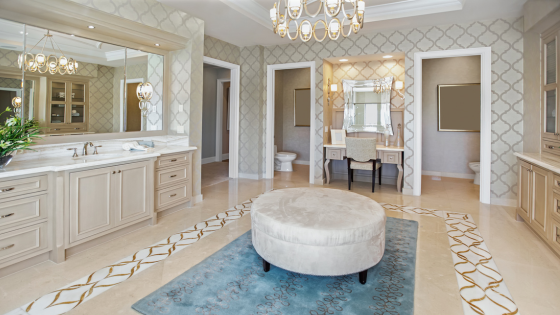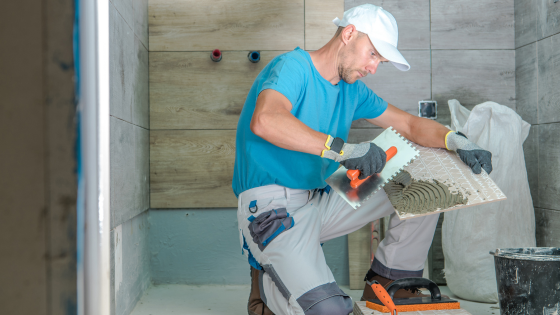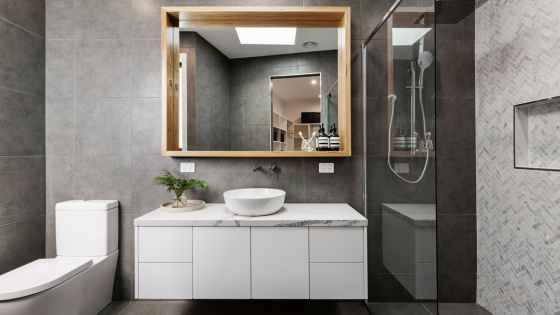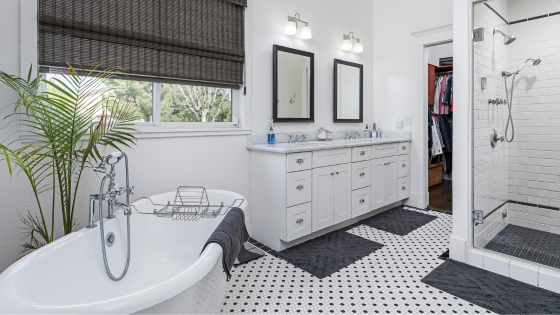Renovating your bathroom is not only about giving it a fresh coat of paint or installing a new vanity. It’s a significant undertaking that requires thoughtful planning, budgeting, and decision-making to ensure that the final result is both beautiful and functional. Whether you’re looking to update an outdated design, increase your home’s value, or simply make better use of the space, understanding the scope of the project is crucial.
In cities like Chicago, the cost of a full, rip-and-replace bathroom remodel can vary widely, ranging from $16,500 to $69,000. This broad price range reflects the many choices homeowners face regarding materials, labor, and the scale of their renovation projects. As such, diving into a bathroom renovation without a clear plan can quickly become overwhelming and costly.
This article aims to guide you through six essential factors to consider before breaking ground on your bathroom renovation.
6 Factors to Consider Before Renovating Your Bathroom
 Budget Planning
Budget Planning
The cornerstone of any successful renovation project is a well-defined budget. A clear understanding of how much you’re willing to spend will influence every decision you make, from the choice of materials to the scale of the changes you plan to undertake.
Setting a realistic budget requires a comprehensive look at all potential costs, including those that are often overlooked, such as delivery fees for materials or the need to update plumbing to meet current standards.
In major cities, labor costs can significantly impact your overall budget. For instance, understanding the Chicago plumber cost is essential for residents in the area, as plumbing work is a common and sometimes unexpected expense in bathroom renovations.
Setting aside a contingency fund of at least 10-30% of your total budget can provide a buffer for unforeseen expenses, ensuring that you’re prepared for any scenario.
Design and Functionality
Balancing aesthetics with functionality is key to a successful bathroom renovation. While it’s tempting to focus on the visual aspects, such as tile choices and color schemes, it’s equally important to consider how the space will be used. The layout should facilitate ease of movement and accommodate all users’ needs, with thoughtful placement of fixtures and adequate storage solutions.
Future-proofing your bathroom by considering long-term needs is also crucial. For instance, if you plan to stay in your home into your older years, incorporating accessibility features like grab bars or a walk-in shower can be a wise decision. Consulting with a design professional can help ensure that your renovation meets your immediate needs while remaining adaptable for the future.

Quality of Materials
The materials you choose for your bathroom renovation can greatly impact both the look and longevity of your space. High-humidity environments like bathrooms require materials that can withstand constant exposure to moisture without deteriorating. Therefore, selecting water-resistant flooring and wall coverings, such as porcelain tile or natural stone, is crucial to prevent mold growth and water damage.
While it may be tempting to cut costs by choosing lower-quality materials, investing in durability will save money and hassle in the long run. Quality materials not only last longer but also maintain their appearance better over time, ensuring that your bathroom remains a beautiful and functional space for years to come. Researching and comparing different materials can help you find the best balance between cost and quality for your renovation project.
Contractor Selection
Choosing the right contractor is crucial for bringing your bathroom renovation vision to life. The expertise, reliability, and quality of work your contractor brings to the project can make a significant difference in the outcome. Start by seeking recommendations from friends, family, or online reviews to compile a list of potential contractors. Then, conduct interviews, asking about their experience with bathroom renovations, timelines, and communication style.

Before making your final selection, ensure you check references and previous work samples. This step will give you insight into their craftsmanship and reliability. It’s also essential to ensure that your contractor is licensed and insured, protecting you from liability and ensuring they adhere to local building codes. A good contractor will not only execute your vision but also provide valuable insights and suggestions based on their professional experience, potentially saving you time and money.
Permits and Regulations
Navigating permits and regulations is a critical step that cannot be overlooked in any bathroom renovation project. Depending on the scope of your renovation, you may need to secure several permits before work can begin. Failure to comply with local building codes and regulations can lead to fines and complicate future sales of your home.
Work with your contractor to identify which permits are required for your project. Professionals in the field will be familiar with the local codes and can handle the application process for you. This ensures that all renovations are up to standard, providing peace of mind that your bathroom will be both safe and legal. Remember, the goal is to enhance your home’s value and functionality, not detract from it with compliance issues.
Long-term Impact and Return on Investment (ROI)
When planning your bathroom renovation, consider its long-term impact and potential return on investment, especially if you plan to sell your home in the future. Certain updates, for example, modernizing fixtures, improving lighting, and optimizing space, can significantly increase your home’s marketability and value. Energy-efficient and water-saving fixtures can also appeal to environmentally conscious buyers, potentially making your property more attractive in a competitive market.

However, it’s important to balance your desires with market trends and not to over-customize in ways that might not appeal to the average buyer. Consulting with a real estate professional can provide insights into which renovations are most likely to increase your home’s resale value, helping you to make informed decisions about where to invest in your renovation.
Final Thoughts
Renovating your bathroom is a substantial undertaking that can enhance your daily life and increase your home’s value. By carefully considering your budget, the design and functionality of the space, the quality of materials, the right contractor for the job, adherence to permits and regulations, and the long-term impact on your home’s value, you can navigate the renovation process more smoothly and avoid common pitfalls. Successful renovations begin with thorough planning and clear communication. By taking the time to carefully evaluate each of these six factors, you’re more likely to achieve a bathroom that not only meets your current needs but also adds lasting value to your home.
 About the Author
About the Author
Lana Hawkins is a stay-at-home mum by day and author by night. She is passionate about traveling, cooking and home decor.


